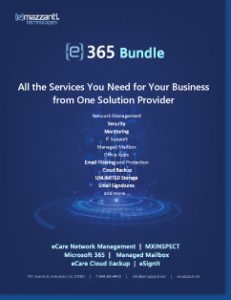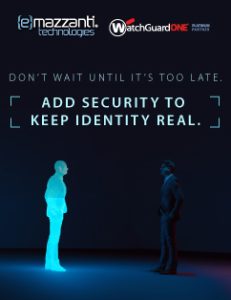2022 has witnessed a return to the office across most industries. However, recent surveys indicate that most companies are offering employees more flexible work options than ever before. Consequently, organizations must implement strategies to optimize hybrid workforce security and productivity.
Challenges to Hybrid Workforce Security and Productivity
Over the past two years, the global workforce has learned a great deal about blending in person and remote workers. At the same time, the landscape continues to change, introducing ever-evolving challenges.
For instance, as a large chunk of the workforce has moved at least partially remote, traditional security approaches no longer suffice. It is no longer possible for IT to identify and secure the perimeter. Instead of a corporate network almost entirely on-premises, cloud computing means that employees access critical resources from almost anywhere.
Additionally, with teams operating partially remotely, employees need different ways to connect. And they need a consistent experience, whether they work in the office or from home. At the same time, malicious attacks have grown increasingly sophisticated.
Neglecting Security Basics Invites Intruders
Unfortunately, while hackers have seized the opportunity to attack, studies show that businesses continue to neglect basic security measures. Security professionals emphasize the following critical practices:
-
- Zero trust security – In a cloud-dominated environment, security teams must take a different approach to cybersecurity. Zero trust security addresses the perimeter challenge by requiring authentication for every transaction, providing greater visibility and threat mitigation.

- Training – In a hybrid workforce, everyone plays a significant role in cybersecurity. Make sure employees receive the necessary training and tools to take responsibility for securing their workspace.
- Endpoint security – An increasingly mobile and remote workforce means that the attack surface has broadened exponentially. Combining zero trust security with improved device management solutions proves essential. Solutions should include mobile threat defense and MFA, supporting a variety of devices and operating systems.
- Patching – Implement automated patching where possible. Security updates for software and firmware protect against known vulnerabilities. But when organizations delay patching, they leave systems open to attack.
The Right Tools Increase Hybrid Workforce Security and Productivity
As hybrid work has taken center stage, the technology community has stepped up to supply tools to support greater flexibility in the way people collaborate. For instance, Microsoft has begun delivering Microsoft Loop to allow users to collaborate fluidly, removing the boundaries between applications.
Another Microsoft Teams enhancement includes the Share-to-Stage feature. This feature improves brainstorming over distance, offering a truly collaborative whiteboard experience. Additional Microsoft features include AI-powered cameras, Outlook RSVP and a Front Row feature, all designed to improve the meeting experience.

Remember the Humans
As most office workers moved to remote work during the pandemic, employees in many cases reported greater levels of productivity. They cited the ability to work a more flexible schedule, allowing them to match their work hours to their lifestyle and personality. They also mentioned the reduction of distractions caused by coworker chatting.
However, increased productivity comes at a price. Over time, workers began to experience digital exhaustion. Microsoft statistics suggest that employees more than doubled their time in video meetings. And they sent far more work-related chats and emails, including after hours. Much of this communication occurred without schedule, putting stress on the work/life balance.
Additionally, a Microsoft analysis of collaboration trends indicates that over time workers communicated less and less outside their immediate network. This can lead to a sense of isolation and inhibits innovation.
Consequently, as organizations implement technology and office space solutions to support a hybrid workforce, they must also consider the human factor. For hybrid work to deliver greater productivity long term, it needs to blend technology solutions with cultural changes.
eMazzanti Delivers the Expertise to Power a Hybrid Workforce
With a workforce spread across multiple continents, eMazzanti understands firsthand the challenges and opportunities inherent with hybrid work. Consequently, we supply both the tools and the expertise needed to help organizations find the optimal security and productivity balance in the hybrid work environment.













